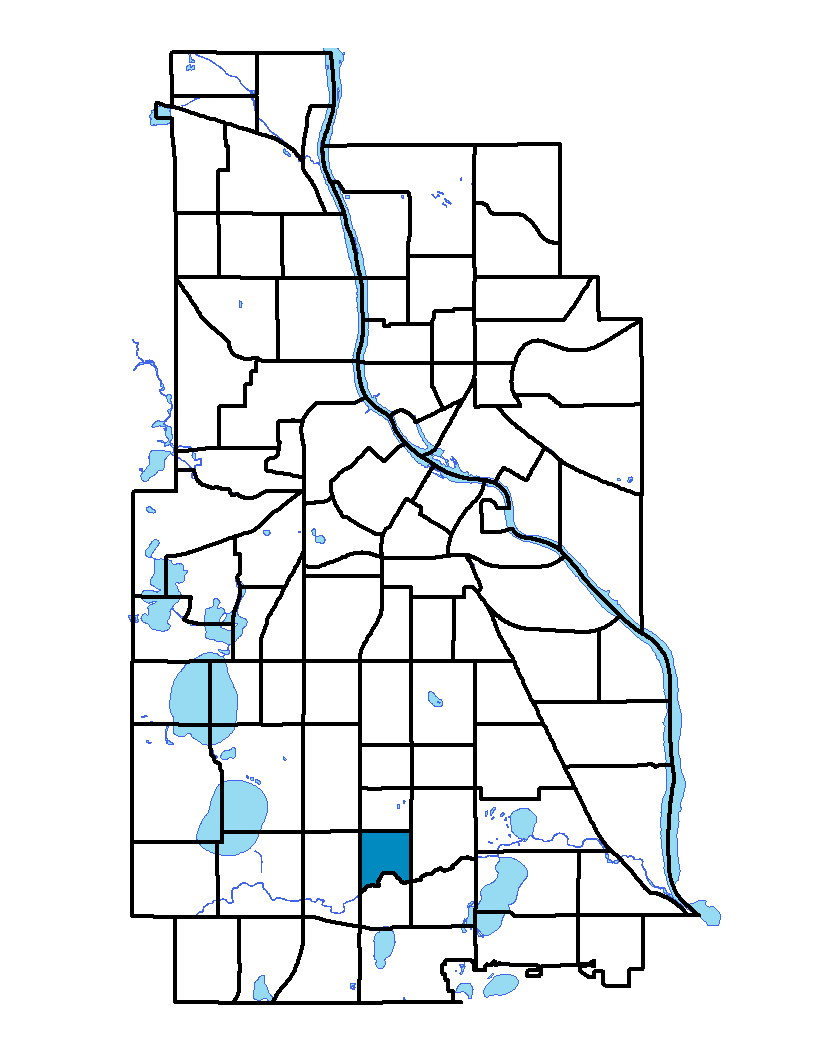"Compare Neighbordhoods" feature is not available in the archived version.
Field
Field neighborhood, located in south Minneapolis, is bordered by I-35W on the west side, Minnehaha Parkway on the south, Chicago Avenue on the east and 46 th Street East on the north. Field is named for the local school. The school is named for Eugene Field, a popular writer of children poetry. A largely residential neighborhood, it is characterized by small two-bedroom pre-1940s stucco, brick and stone houses. Chicago Avenue is the main commercial thoroughfare.
Field, Regina and Northrop neighborhoods share a neighborhood association; to learn more visit: www.frnng.org
Indicator Details
|
Indicators |
Primary Domain | Indicator Value | Rank | Tier |
|---|---|---|---|---|
| Walkability | Neighborhood Characteristics | 62 | 44 | Middle |
| Voter Participation | Social Cohesion | 34.1% | 26 | Top |
| Violent Crime | Health Systems and Public Safety | 28.7 | 13 | Top |
| Vacancy Rates | Housing | 5.2% | 21 | Top |
| Tree Cover | Natural Areas | 30.3% | 23 | Top |
| Travel Time to Work | Employment Opportunities | 22.7 minutes | 51 | Middle |
| Transit Accessibility | Transportation | 341.5 | 39 | Middle |
| Toxic Releases from Facilities | Environmental Hazards | 0.0% | 1 | Top |
| School Readiness Scores | Educational Opportunities | -% | - | Data N/A |
| School Proximity to Traffic | Environmental Hazards | 0.0% | 1 | Top |
| Residential Proximity to Traffic | Environmental Hazards | 37.5% | 77 | Bottom |
| Residential Mobility | Social Cohesion | 90.5% | 5 | Top |
| Reading Proficiency | Educational Opportunities | -% | - | Data N/A |
| Public Assisted Households | Employment Opportunities | 9.0% | 23 | Top |
| Proximity to Superfund Sites | Environmental Hazards | 0.0% | 1 | Top |
| Proximity to Brownfield Sites | Environmental Hazards | 0.0% | 1 | Top |
| Preventable Hospitalizations | Health Systems and Public Safety | 1.5 | 18 | Top |
| Preschool Enrollment | Educational Opportunities | 63.3% | 23 | Top |
| Pedestrian Connectivity | Transportation | 124.4 | 45 | Middle |
| Offsite Alcohol Outlets | Neighborhood Characteristics | - | - | Data N/A |
| Motor Vehicle Collisions | Health Systems and Public Safety | 1.7 | 15 | Top |
| Low Birth Weight | Health Systems and Public Safety | 2.8% | 7 | Top |
| Long-Term Unemployment | Employment Opportunities | 6.9% | 58 | Middle |
| Local Business Vitality | Economic Health | 65.6% | 14 | Top |
| Household Transportation Costs | Transportation | 18.9% | 70 | Bottom |
| High School Graduation Rate | Educational Opportunities | -% | - | Data N/A |
| Food Desert | Neighborhood Characteristics | -% | - | Data N/A |
| Excessive Housing Cost Burden | Housing | 20.9% | 15 | Top |
| Employment Rate | Employment Opportunities | 73.8% | 19 | Top |
| Commute Mode Share | Transportation | 21.7% | 61 | Bottom |
| Chronic School Absence | Health Systems and Public Safety | 28.4% | 6 | Top |
| Business Retention | Economic Health | -1.6% | 70 | Bottom |
| Blood Lead Levels in Children | Housing | 0.0% | 1 | Top |
| Age of Housing | Housing | 95.6% | 74 | Bottom |
| Adult Educational Attainment | Educational Opportunities | 92.7% | 35 | Middle |
| Access to Parks and Open Space | Natural Areas | 4.6% | 49 | Middle |
| Access to Mainstream Financial Services | Economic Health | 19.9% | 33 | Middle |

